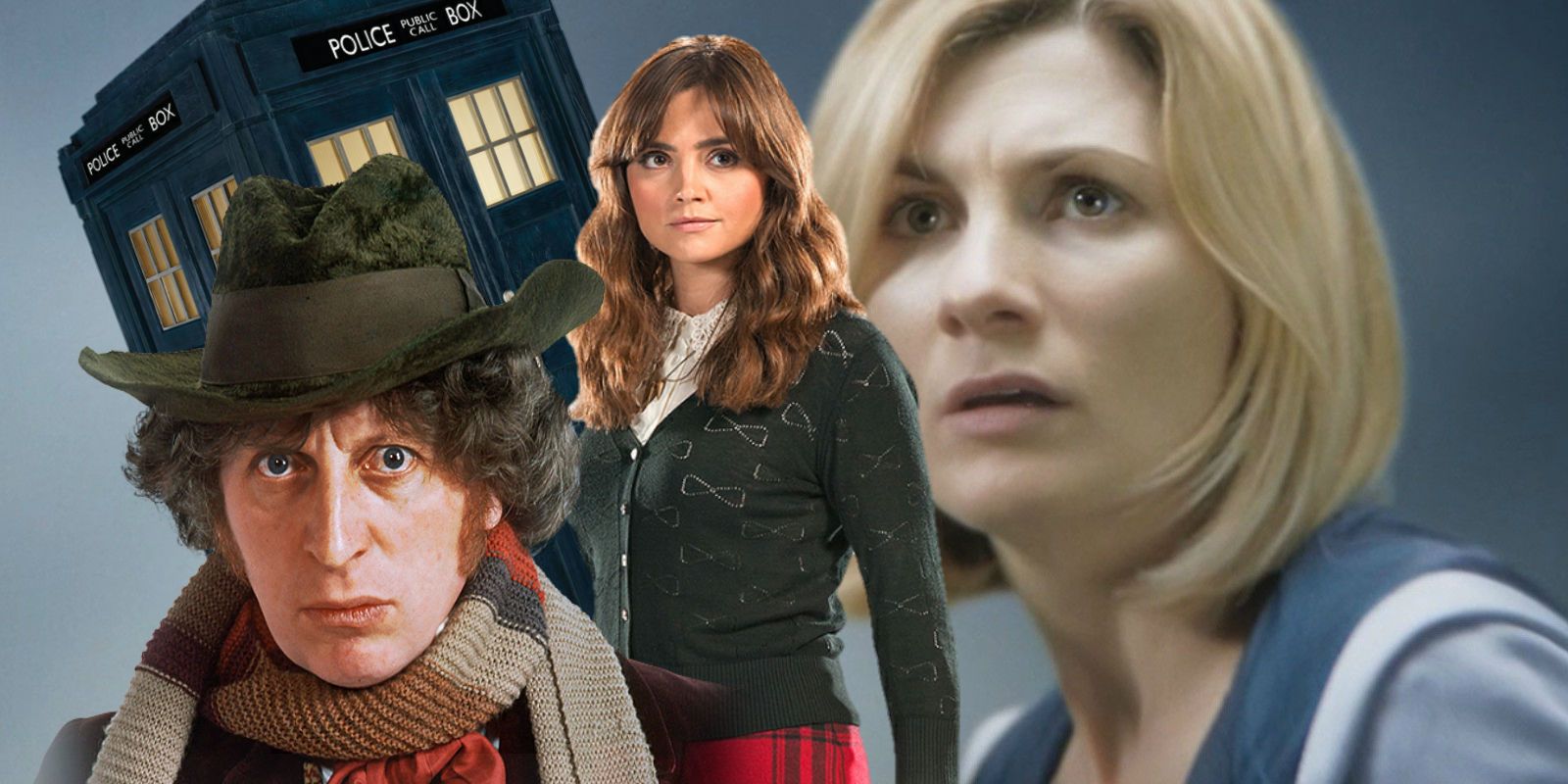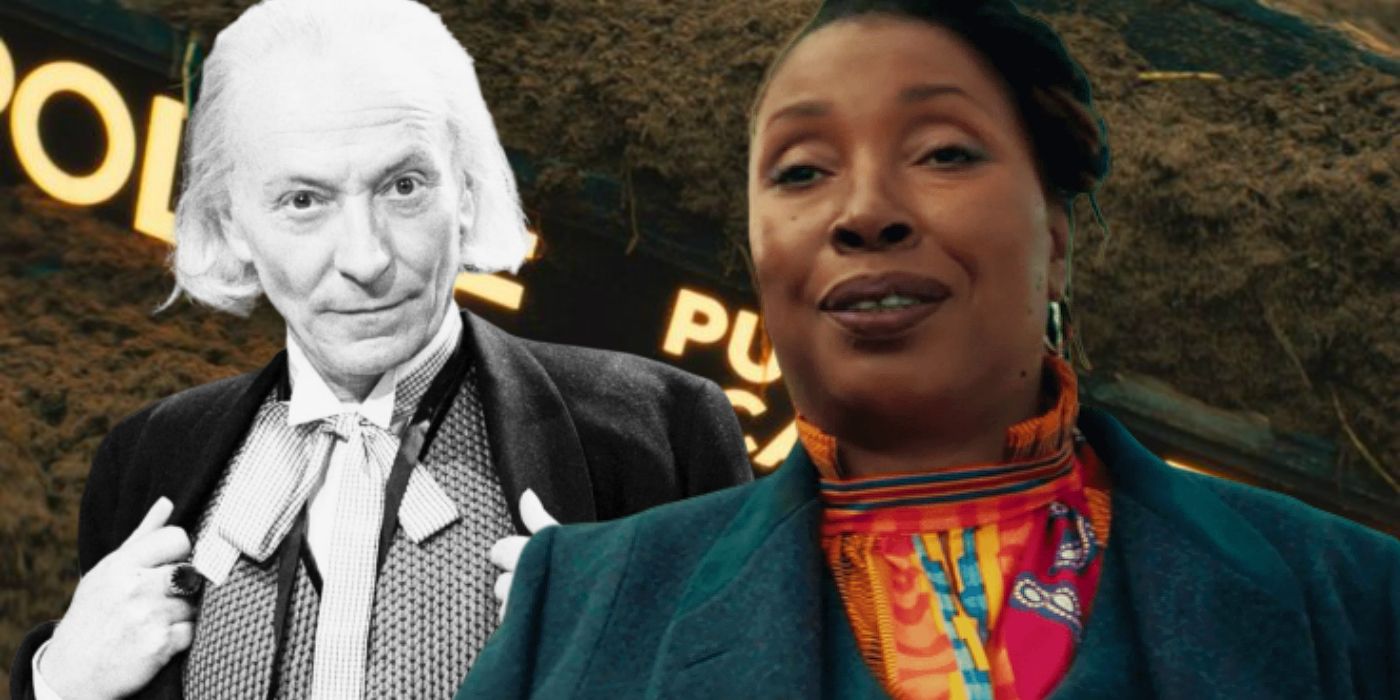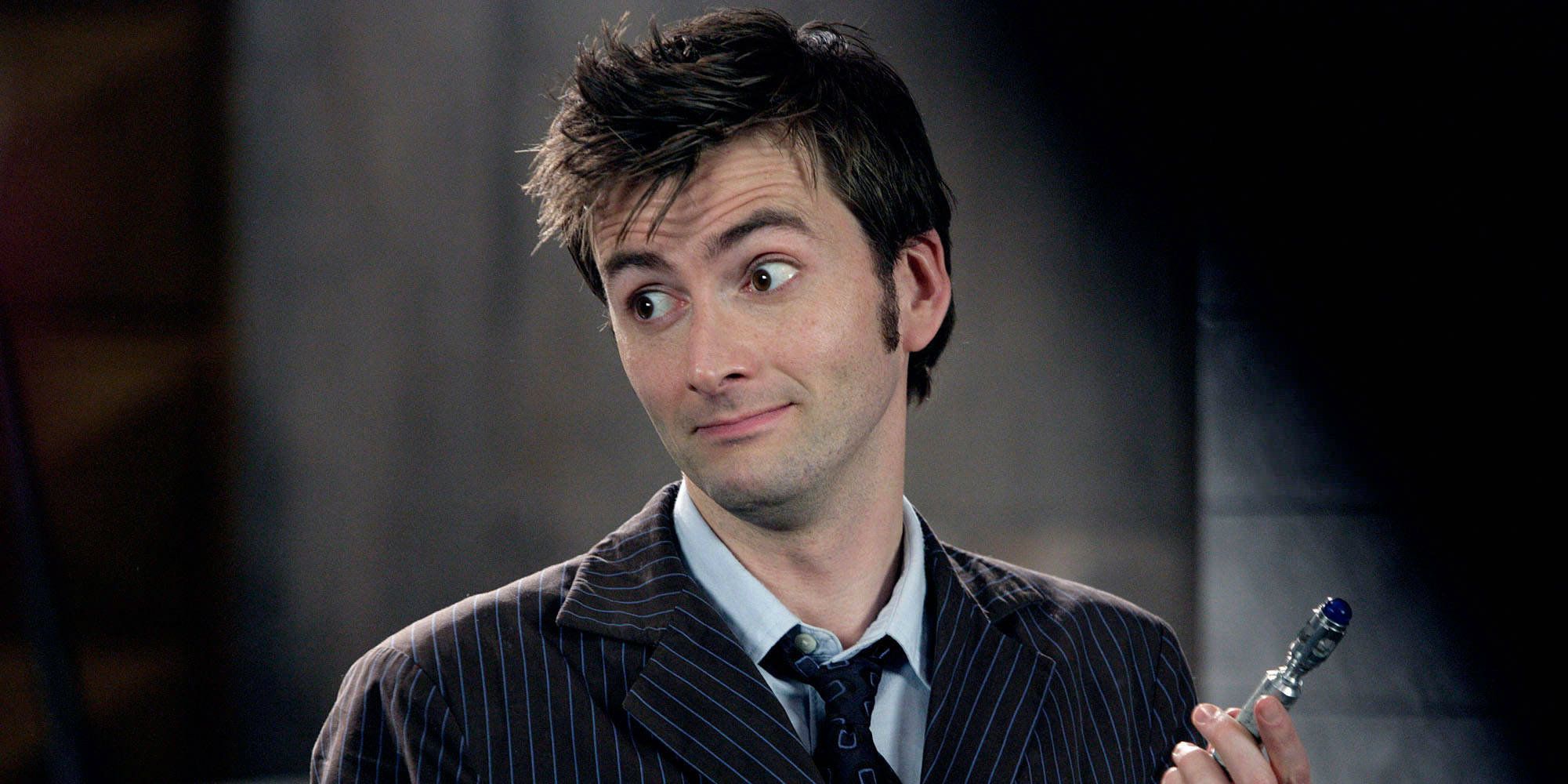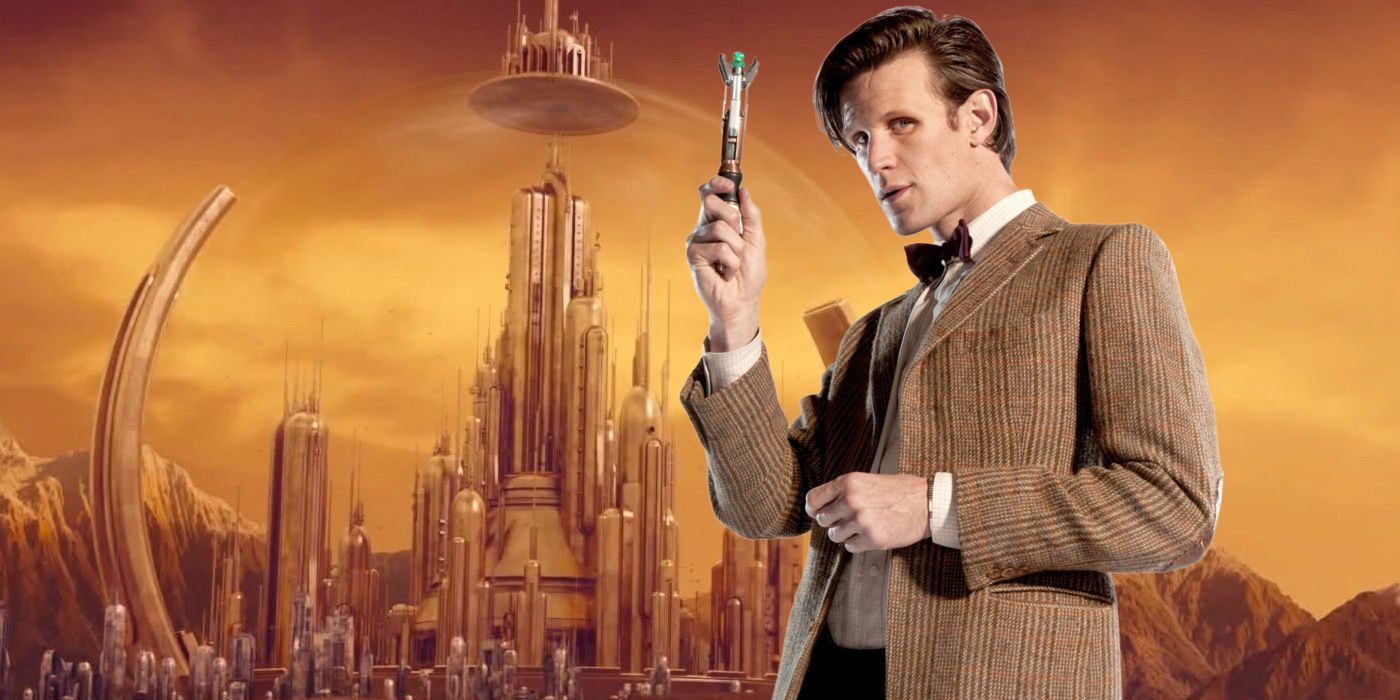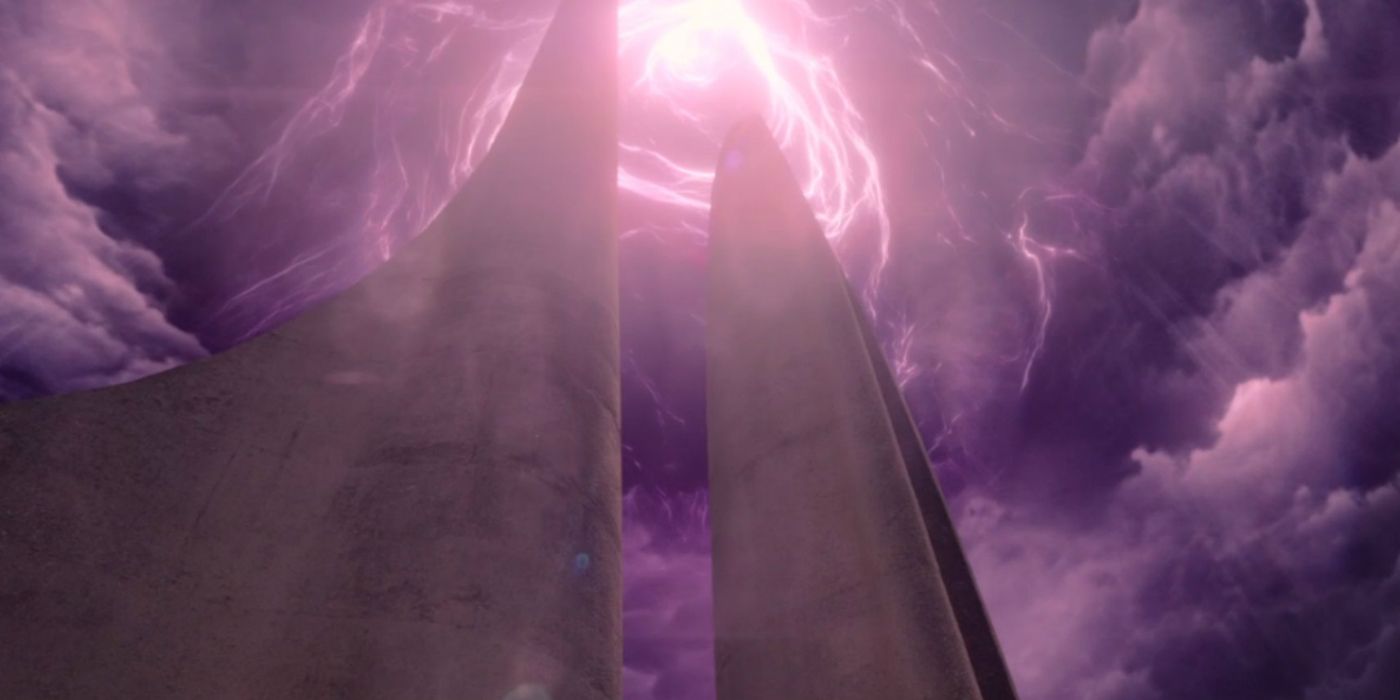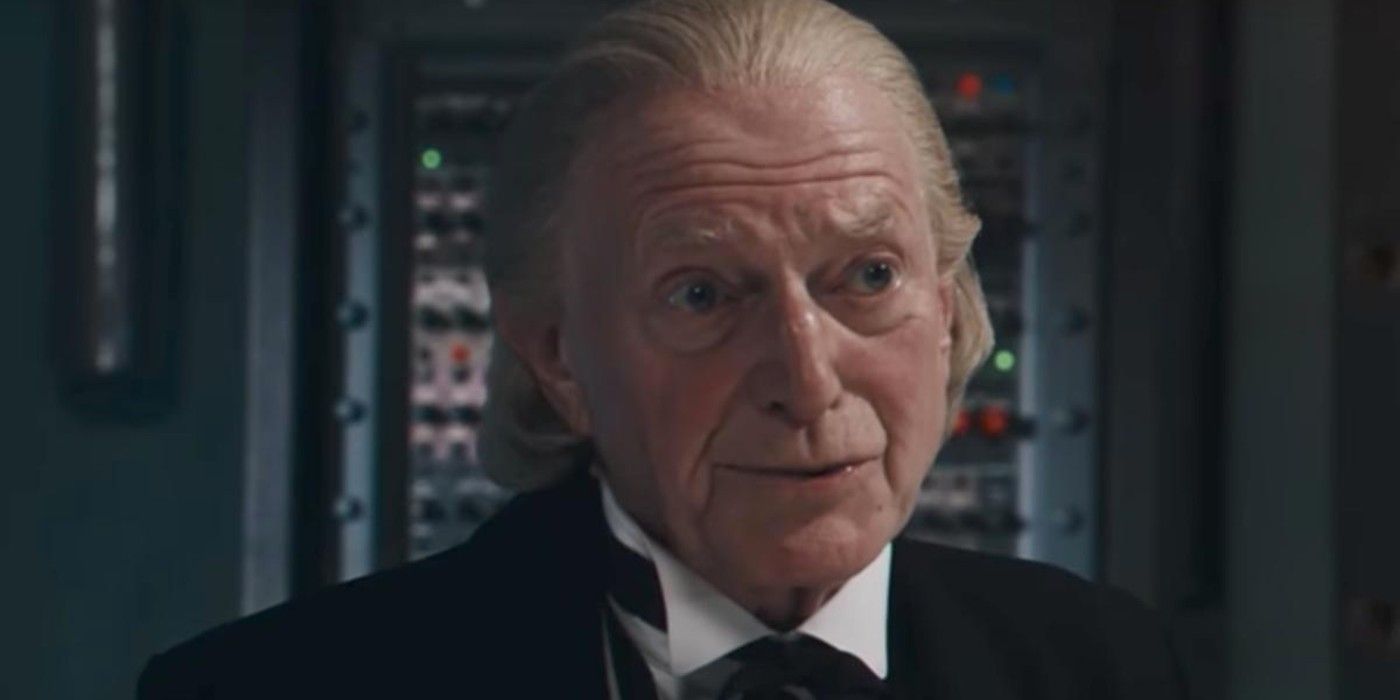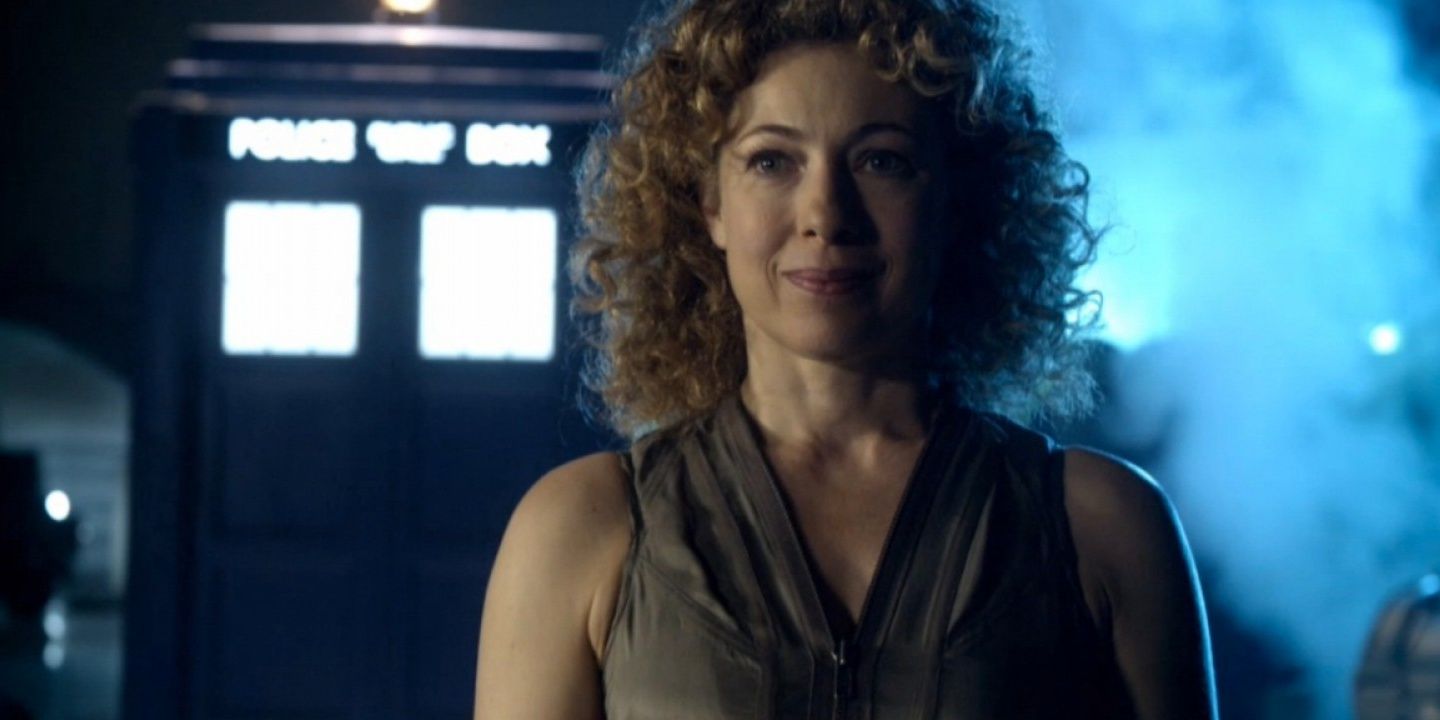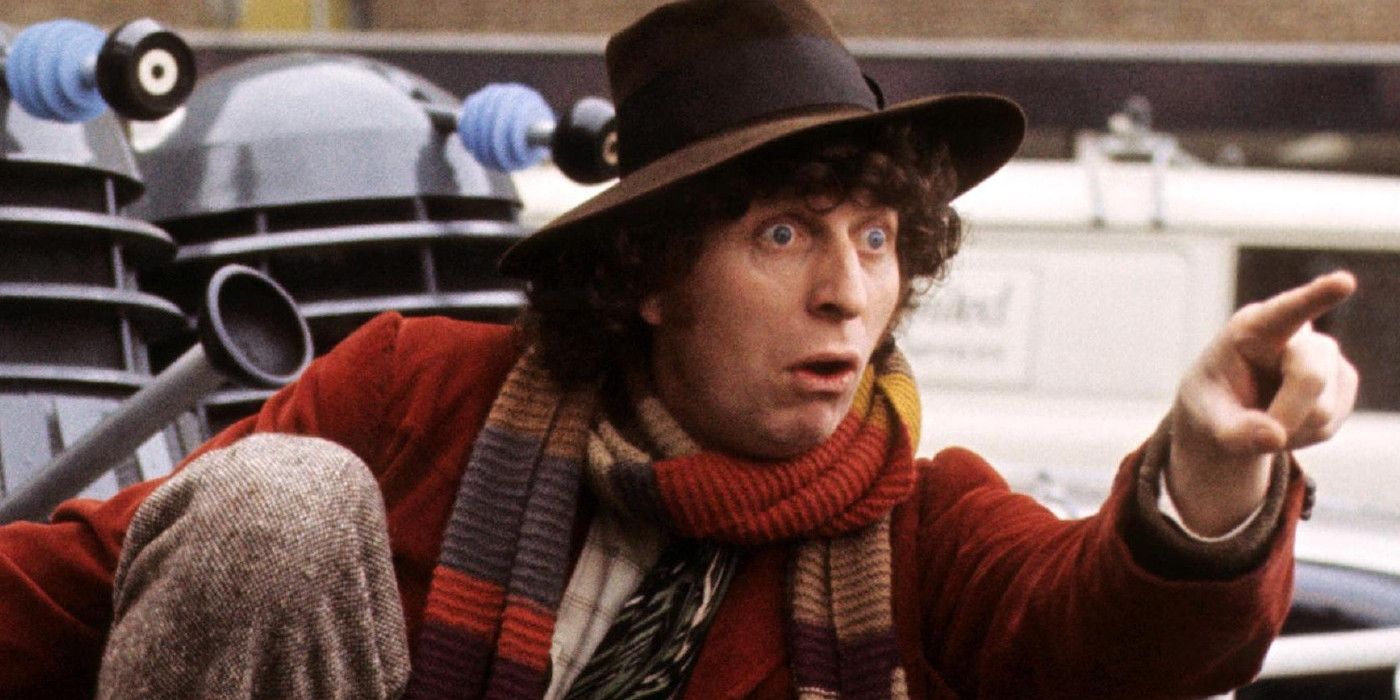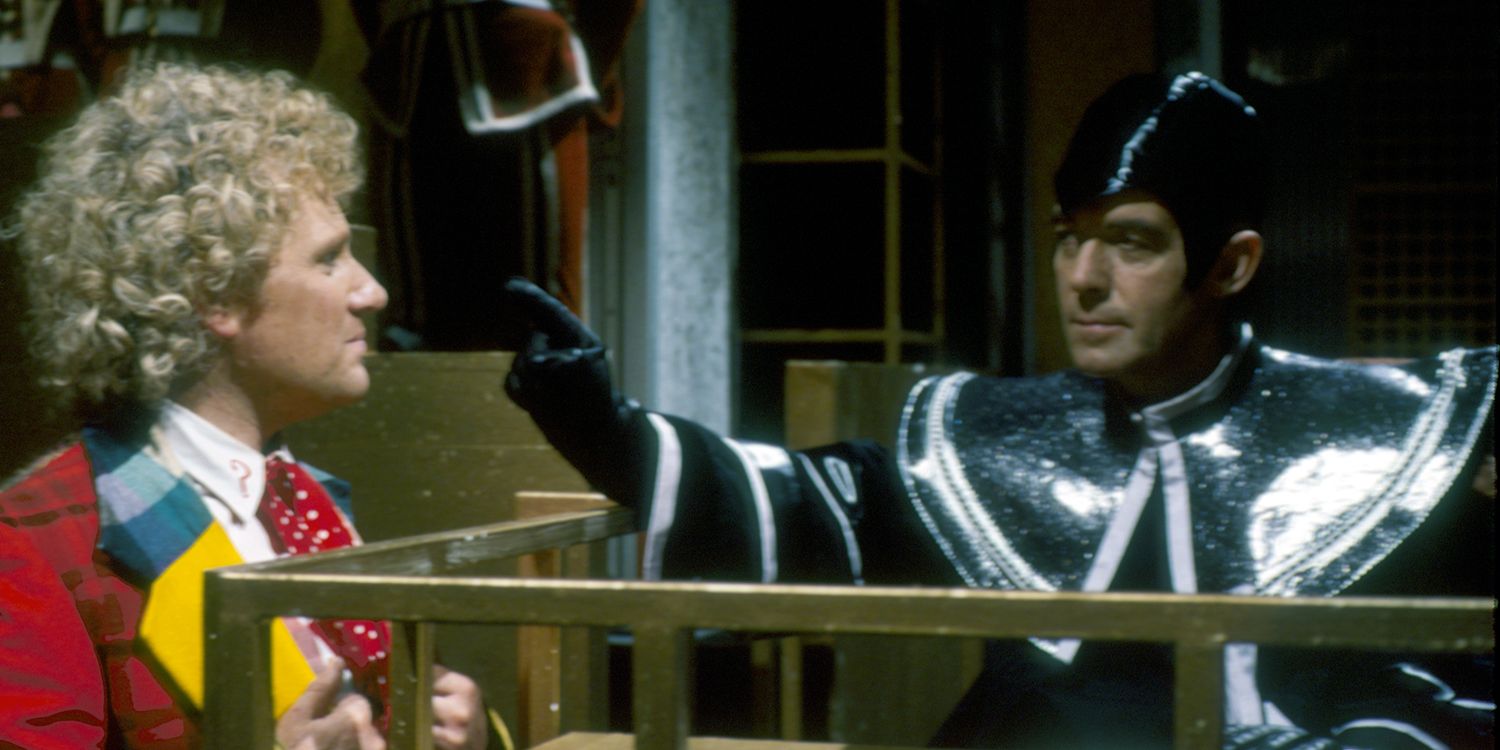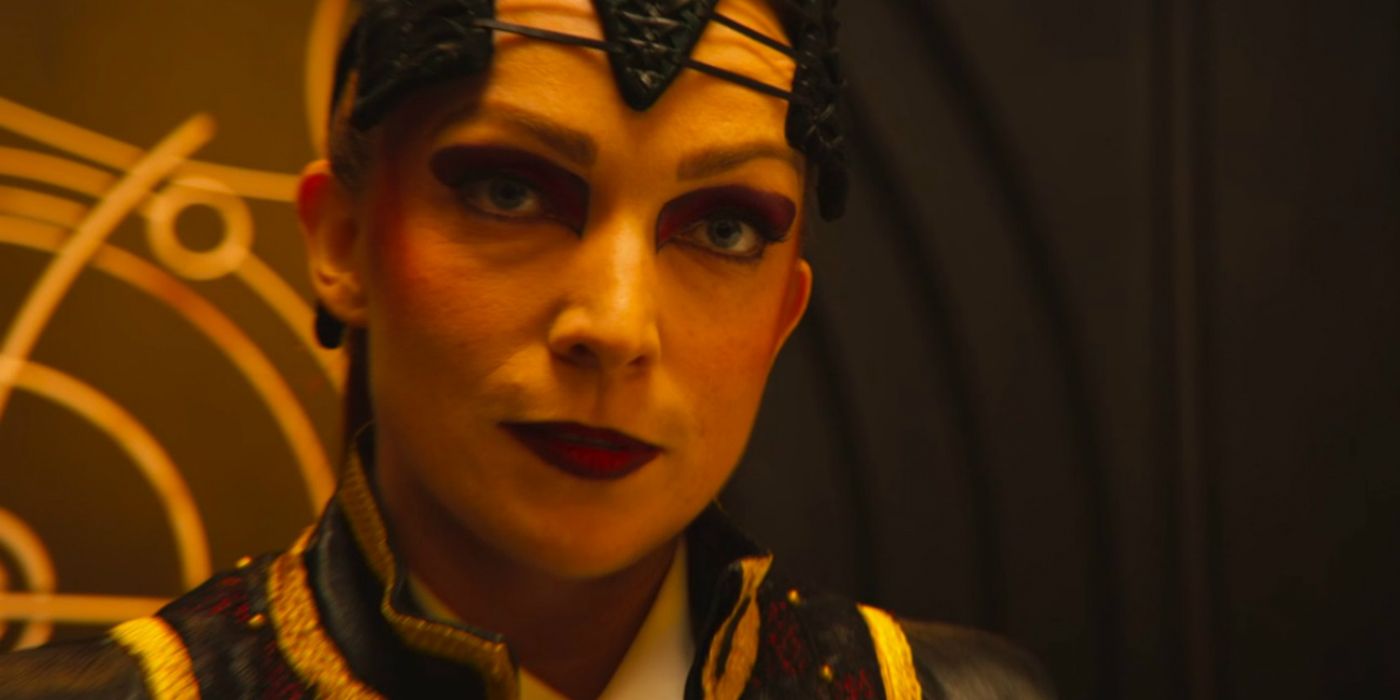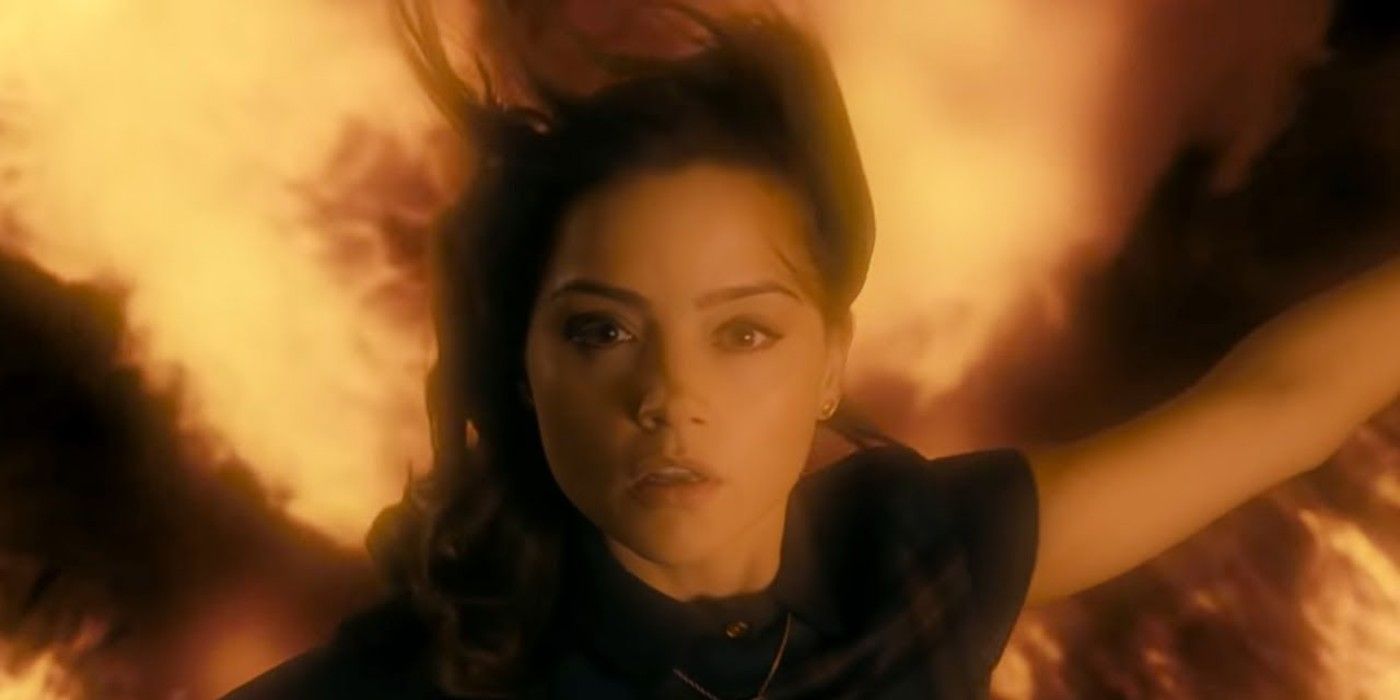Doctor Who's latest big reveal has left some sizable plot holes in the TV show's long canon. The Timeless Child mystery has been in effect since Jodie Whittaker's first few episodes, reemerging at the beginning of season 12, but only now has a definitive answer been offered. In "The Timeless Children," The Master reveals that the Time Lords originated when The Doctor fell through a boundary from another universe into our own. The natives of Gallifrey used the inherent healing abilities of The Doctor to create the regeneration trick they would later build a civilization upon, but due to some dealings with The Divison, Doctor Who's hero was forced to forget this history and their importance to Gallifrey's inception.
Such a seismic alteration to Doctor Who canon has obviously divided fan opinion, but while it might be too early to tell whether the Timeless Child is a stroke of genius or a lesson in how to destroy a franchise in 65 minutes, it's hard to argue that the idea isn't completely ridiculous, one way or the other. To completely turn 50 years of story on its head is a brave and insane undertaking and, ironically, only time will dictate whether this crazy idea will pay off.
As one might expect, this rewriting of Doctor Who history has created some plot holes where the new story doesn't quite match up with what fans already know. The following points may yet be addressed in Doctor Who's future, and some are more important than others, but as things stand, they are narrative gaps that the Timeless Child mystery has created. Here are all the Doctor Who plot holes season 12's finale left behind.
The Blue Box TARDIS
Perhaps the most glaring issue with The Doctor having X amount of past lives before William Hartnell concerns the blue box form of the TARDIS. After learning that she's far, far older than she thinks she is, Jodie Whittaker's Doctor surmises that the Ruth Doctor encountered previously must be a predecessor dating beyond her (supposedly) first incarnation. Certainly, this would explain why Ruth says she's working for someone (The Division) and why she doesn't recognize the Sonic Screwdriver or the Thirteenth Doctor. But Ruth's TARDIS is shaped like a police box, and this shouldn't be the case if she came before Hartnell.
In Doctor Who's second-ever episode, the First Doctor travels from 1960s England to the prehistoric era, and upon exiting the TARDIS, is surprised to see that his chameleon circuit hasn't changed the ship's exterior from a police box to something more period-appropriate. This is the moment the TARDIS assumes (and keeps) its police box image, so Ruth's TARDIS should still be camouflaging as intended.
Two Hearts
In "The Timeless Children," it's revealed that the people of Gallifrey used The Doctor, a child from another world, to obtain powers of regeneration, artificially stealing the child's natural abilities. However, this doesn't automatically explain why the rest of The Doctor's biology is the same as every other Time Lord, especially when it comes to having two hearts. So are The Doctor's real race and the Time Lords both coincidentally born with dual tickers, or did the Gallifreyans originally have one heart, but Tecteun's experiments resulted in the Time Lords developing a second over time, mimicking the Doctor's physiology? Certainly, there's no mention of ancient Time Lords only possessing a single heart.
On another biological note, Paul McGann's Eighth Doctor claimed to be half-human. While this was arguably already a plot hole, the chances of The Doctor having human DNA are now even more unlikely, since she doesn't even come from this universe.
The "Doctor" Name
Similar to the TARDIS plot hole mentioned above, the name "The Doctor" is something that should be unique to this incarnation of the character. In "The Sound of Drums," The Master says he remembers The Doctor choosing his own title because he wanted to "make people better." Logically, then, all of the pre-Hartnell Doctors should call themselves something totally different, but Ruth once again disproves this by also referring to herself as "The Doctor." An unavoidable hangover from a previous life, perhaps?
Although not a plot hole in itself, it's also interesting that The Doctor's real name now holds either far less or far more significance. The Matt Smith era teased, but never revealed, the birth name of The Doctor, which is known only to the Time Lords and River Song. If The Doctor's name comes from the character's true home planet, this could be a vital clue as to their origins. However, if The Doctor's mysterious real name was just one given by Tecteun, it means virtually nothing now.
Why Does The Doctor Have Only 12 Regenerations?
"The Timeless Children" explains that the Time Lords harvested The Doctor's regeneration abilities for their own use, but strictly limited its usage to 12 times, so as to avoid creating immortals. But if the regeneration limit is self-imposed, it shouldn't apply to The Doctor at all. As the Timeless Child, it's impossible to say how often The Doctor can regenerate, but until specified otherwise, it's natural to assume she could do so indefinitely, which means Matt Smith's Doctor didn't need a new regeneration cycle in order to change into Peter Capaldi. Did the Time Lords pretend to give The Doctor a new set of lives just to maintain their illusion, or did Tecteun find a way to impose the Time Lords' own limit on The Doctor herself?
Regenerating Into A Child
The Doctor remembers growing up as a child, and these memories are corroborated by The Master, who claims that her entire stint with The Division happened before the duo grew up together on Gallifrey. While Doctor Who season 12 shows viewers how The Division erased The Doctor's memories of her earlier lives, it's not clear how she went back to being a child. Traditionally, Time Lords age from youth to adulthood, but the regeneration process doesn't impact this, instead just renewing the adult body. This is demonstrated in "The Timeless Children" itself, when the Timeless Child falls from a cliff and regenerates into another child. A montage then shows the various incarnations of the character getting older and older, and even a new regeneration cycle doesn't reset the aging process. Consequently, The Doctor shouldn't remember being a child at all.
River Song
River Song's origins were already convoluted, but are even more problematic now with the Timeless Child in play. The story goes that the Eleventh Doctor's companions, Amy and Rory, had sex on the TARDIS while travelling through the Time Vortex and their child, while still human, was gifted with regeneration abilities. When it was thought that the Time Lords had mastered regeneration on their own accord, this was just about plausible, but doesn't quite work neatly alongside the season 12 finale's reveals. If regeneration is something the Time Lords genetically engineered from The Doctor's unknown race, Rory being unable to keep his sonic screwdriver in check shouldn't have meant his child was gifted the same powers.
The Doctor Entered The Matrix Before
The Master claims to have accidentally uncovered the secret of the Timeless Child while poking around in the Matrix, but this might be considered strange, as both he and The Doctor have poked around in there before. Tom Baker's Doctor and the disfigured Master entered the Matrix in "The Deadly Assassin," with the Fourth Doctor going back for more in "The Invasion of Time," wearing a crown that provided unrestricted access to the giant Gallifreyan hard drive. Since The Master almost seemed to stumble across The Doctor's origin story, why did neither character notice it before? The likely explanation here is that the Matrix is so vast, The Doctor and Master were both fooled by the Brendan perception filter while exploring the amassed data previously.
The Valeyard
The Valeyard was introduced during the Sixth Doctor's reign as an amalgamation of The Doctor's darker instincts converged into one being, said to emerge at some point after the twelfth regeneration. When Peter Capaldi's reign began, Doctor Who fans swiftly began to speculate whether The Valeyard would now make their long-awaited appearance, but only a brief reference was offered by Steven Moffat during this regeneration. Now fans know that The Doctor actually passed 12 regenerations long, long ago, The Valeyard's absence looks even stranger.
Where Do The Division Go?
There remains much mystery surrounding The Division. The shady bunch appear to be a secret offshoot of Time Lords that actively meddle with time, in contradiction of Gallifrey's usual code, and The Doctor conducted missions for them before running away in a stolen TARDIS. However, the existence of The Division creates a plot hole when considering the occasions Time Lords have elected to fiddle with history and recruited The Doctor to do so. Ever since the time of the Third Doctor, the Time Lords have sporadically assigned The Doctor missions, such as wiping out the Daleks in the classic "Genesis of the Daleks." This was most likely at the behest of the Celestial Intervention Agency (another shadowy Time Lord outfit) but if The Division existed, wouldn't this be their area of expertise? This new group appear to just be doing exactly what the Time Lords have been for years already.
Clara Entering The Doctor's Time Stream
In Matt Smith's "The Name of the Doctor" season 7 finale, The Great Intelligence enters The Doctor's time stream to undo all the good Doctor Who's hero had ever achieved in the past, with Clara bravely jumping in to stop him. This time stream harbored the entire past, present and future of The Doctor and Clara experienced all of it, even uncovering the previously-unseen War Doctor as a result of finding everything Doctor-related laid out in front of her. Surely, she would've seen the pre-Hartnell Doctors during this experience? Clara knew enough of The Doctor's origin to lead him towards the right TARDIS, so there's no reason for her not to go further back beyond that. Is this something The Division could have even meddled with?
Doctor Who returns at Christmastime with "Revolution of the Daleks" on BBC and BBC America.

